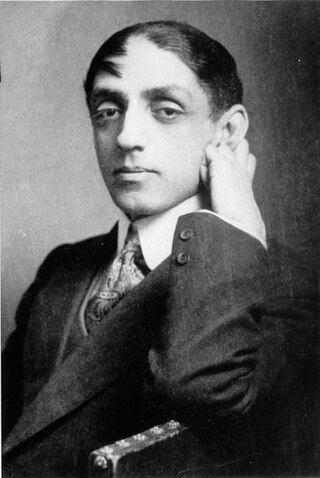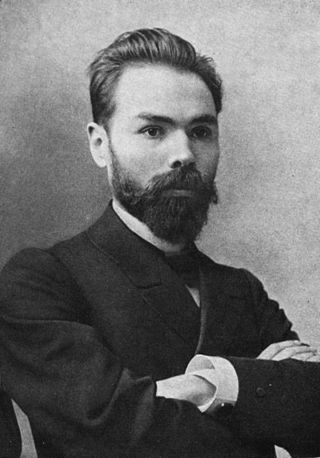Related Research Articles

Alice O'Connor, better known by her pen name Ayn Rand, was a Russian-born American author and philosopher. She is known for her fiction and for developing a philosophical system she named Objectivism. Born and educated in Russia, she moved to the United States in 1926. After two early novels that were initially unsuccessful and two Broadway plays, Rand achieved fame with her 1943 novel The Fountainhead. In 1957, she published her best-selling work, the novel Atlas Shrugged. Afterward, until her death in 1982, she turned to non-fiction to promote her philosophy, publishing her own periodicals and releasing several collections of essays.
Individualist anarchism is the branch of anarchism that emphasizes the individual and their will over external determinants such as groups, society, traditions, and ideological systems. Although usually contrasted with social anarchism, both individualist and social anarchism have influenced each other. Mutualism, an economic theory sometimes considered a synthesis of communism, market economy and property, has been considered individualist anarchism and other times part of social anarchism. Many anarcho-communists regard themselves as radical individualists, seeing anarcho-communism as the best social system for the realization of individual freedom. Some anarcho-capitalists claim anarcho-capitalism is part of the individualist anarchist tradition, while others disagree and claim individualist anarchism is only part of the socialist movement and part of the libertarian socialist tradition. Economically, while European individualist anarchists are pluralists who advocate anarchism without adjectives and synthesis anarchism, ranging from anarcho-communist to mutualist economic types, most American individualist anarchists of the 19th century advocated mutualism, a libertarian socialist form of market socialism, or a free-market socialist form of classical economics. Individualist anarchists are opposed to property that violates the entitlement theory of justice, that is, gives privilege due to unjust acquisition or exchange, and thus is exploitative, seeking to "destroy the tyranny of capital,—that is, of property" by mutual credit.

Symbolism was a late 19th-century art movement of French and Belgian origin in poetry and other arts seeking to represent absolute truths symbolically through language and metaphorical images, mainly as a reaction against naturalism and realism.

Mikhail Alekseevich Kuzmin was a Russian poet, musician and novelist, a prominent contributor to the Silver Age of Russian Poetry.

Nikolai Vasilyevich Ustryalov was a Russian politician and a leading pioneer of National Bolshevism. His great-uncle was Nikolay Gerasimovich Ustryalov. Ustryalov and many of his followers were later charged with counter-revolutionary activity and executed during the Great Purge.

Valery Yakovlevich Bryusov was a Russian poet, prose writer, dramatist, translator, critic and historian. He was one of the principal members of the Russian Symbolist movement.

Gustav Landauer was one of the leading theorists on anarchism in Germany at the end of the 19th and the beginning of the 20th century. He was an advocate of social anarchism. As an avowed pacifist, Landauer advocated the principle of "non-violent non-cooperation" in the tradition of Étienne de La Boétie and Leo Tolstoy.

Vyacheslav Ivanovich Ivanov was a Russian poet, playwright, Classicist, and senior literary and dramatic theorist of the Russian Symbolist movement. He was also a philosopher, translator, and literary critic.
Silver Age is a term traditionally applied by Russian philologists to the last decade of the 19th century and first two or three decades of the 20th century. It was an exceptionally creative period in the history of Russian poetry, on par with the Golden Age a century earlier. The term Silver Age was first suggested by philosopher Nikolai Berdyaev, but it only became customary to refer thus to this era in literature in the 1960s. In the Western world other terms, including Fin de siècle and Belle Époque, are somewhat more popular. In contrast to the Golden Age, female poets and writers influenced the movement considerably, and the Silver Age is considered to be the beginning of the formal academic and social acceptance of women writers into the Russian literary sphere.

Nikolay Andreyevich Gredeskul was a liberal politician from the Russian Empire.

Georgy Ivanovich Chulkov was a Russian Symbolist poet, editor, writer and critic. In 1906 he created and popularized the theory of Mystical Anarchism.

The Decadent movement was a late-19th-century artistic and literary movement, centered in Western Europe, that followed an aesthetic ideology of excess and artificiality.
Individualist anarchism in the United States was strongly influenced by Benjamin Tucker, Josiah Warren, Ralph Waldo Emerson, Lysander Spooner, Pierre-Joseph Proudhon, Max Stirner, Herbert Spencer and Henry David Thoreau. Other important individualist anarchists in the United States were Stephen Pearl Andrews, William Batchelder Greene, Ezra Heywood, M. E. Lazarus, John Beverley Robinson, James L. Walker, Joseph Labadie, Steven Byington and Laurance Labadie.
Egoist anarchism or anarcho-egoism, often shortened as simply egoism, is a school of anarchist thought that originated in the philosophy of Max Stirner, a 19th-century philosopher whose "name appears with familiar regularity in historically orientated surveys of anarchist thought as one of the earliest and best known exponents of individualist anarchism". Egoist anarchism places the individual at the forefront, crafting ethical standards and actions based on this premise. It advocates personal liberation and rejects subordination, emphasizing the absolute priority of self-interest.

Saul Yanovsky was an American anarchist and journalist.
Individualist anarchism in Europe proceeded from the roots laid by William Godwin and soon expanded and diversified through Europe, incorporating influences from individualist anarchism in the United States. Individualist anarchism is a tradition of thought within the anarchist movement that emphasize the individual and his or her will over external determinants such as groups, society, traditions, and ideological systems. While most American individualist anarchists advocate mutualism, a libertarian socialist form of market socialism, or a free-market socialist form of classical economics, European individualist anarchists are pluralists who advocate anarchism without adjectives and synthesis anarchism, ranging from anarcho-communist to mutualist economic types.

Gérard de Lacaze-Duthiers was a French writer, art critic, pacifist and anarchist.
Vladimir Ananievich Zlobin was a Russian symbolist poet and secretary for Zinaida Gippius.

Freie Arbeiter Stimme was a Yiddish-language anarchist newspaper published from New York City's Lower East Side between 1890 and 1977. It was among the world's longest running anarchist journals, and the primary organ of the Jewish anarchist movement in the United States; at the time that it ceased publication it was the world's oldest Yiddish newspaper. Historian of anarchism Paul Avrich described the paper as playing a vital role in Jewish–American labor history and upholding a high literary standard, having published the most lauded writers and poets in Yiddish radicalism. The paper's editors were major figures in the Jewish–American anarchist movement: David Edelstadt, Saul Yanovsky, Joseph Cohen, Hillel Solotaroff, Roman Lewis, and Moshe Katz.

Polyxena Sergeyevna Solovyova was a Russian poet and illustrator. A Symbolist poet from the Silver Age of Russian Poetry, she won the Medal of Pushkin in 1908. She was the first person to translate Alice in Wonderland into the Russian language and was known for founding and illustrating the magazine and publishing house Тропинка ("Path") with her partner, Natalia Manaseina.
References
- Bernice Glatzer Rosenthal. "The Transmutation of the Symbolist Ethos: Mystical Anarchism and the Revolution of 1905" in Slavic Review 36, No. 4 (December 1977), pp. 608–627.
